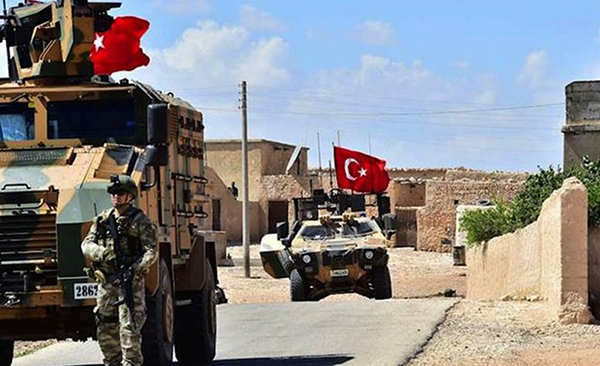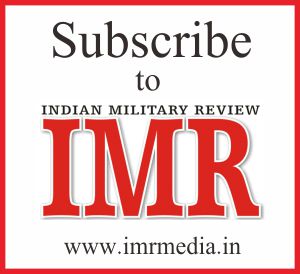Turkey’s proxy wars are growing in number. Erdogan believes that he can get a seat at the high table by initiating proxy battles. But by flexing his military muscle, the Turkish president is only isolating his country further.
Turkey has reportedly supplied materials and fighters to Libya in a bid to change the course of the civil war. Erdogan provoked Greece in the eastern Mediterranean, and both countries were on the brink of a war
Turkey’s proxy wars are growing in number. Turkey has reportedly supplied materials and fighters to Libya in a bid to change the course of the civil war. Erdogan provoked Greece in the eastern Mediterranean, and both countries were on the brink of a war.
The Turkish president also intervened in Syria. Later, it instigated Azerbaijan, pushing for a full blown war in Nagorno-Karabakh.
Libya
The Turkish president has pushed Turkish arms, the military and proxies to volatile regional battlegrounds. This began in Libya when Turkey announced a military intervention in civil war in January 2020.
Erdogan is a key supporter of the Tripoli-based government of National Accord that is fighting the Libyan National Army, led by commander Khalifa Haftar.
In April 2019, the Libyan National Army launched an offensive to seize the capital. Despite a UN embargo, Turkey deployed its military forces, sent Syrian militants and even armed the government of National Accord.
French president Emmanuel Macron accused Turkey of meddling in the Libyan conflict. In Macron’s eyes, Turkey has threatened European interests with its military deployments.
“I have already had the opportunity to make this very clear to president Erdogan: I now consider that Turkey is playing a dangerous game in Libya and is in breach of all the commitments it made at the Berlin conference. This is the same speech I made this afternoon during the exchange I had with president Trump, because it is in the interests of Libya, of its neighbours, of the whole region, but also of Europe”, Emmanuel Macron had said.
Dispute with Greece
In August, Turkey pursued an aggressive gas exploration effort in eastern Mediterranean. Erdogan has sent a gas exploration ship to waters claimed by Greece and Cyprus and also angered France by his actions.
Encounters between Turkish and Greek vessels on the high seas raised the threat of war. France sided with Greece. Erdogan responded by saying: “France is often on the agenda. I don’t want to give names, but I am forced to because he comes at me a lot. It isn’t with our people but he says we have a problem with Erdogan. Mr Macron, you are going to have way more problems with me.”
Support to Azerbaijan
By the end of September, Erdogan triggered a new conflict, and ramped up support to Azerbaijan. On September 27, fighting broke out in Nagorno-Karabakh, a disputed region at the crossroads of Asia and Europe.
ALSO READ: Armenia and Azerbaijan: The Conflict Over Nagorno-Karabakh
Erdogan sent Syrian mercenaries to assist Azerbaijan and gave Azerbaijan complete military support, defying calls for a ceasefire.
“Given that the three Minsk countries, USA, Russia and France have neglected this problem for nearly 30 years, first of all, it is unacceptable that they are involved in a search for a ceasefire in the face of these negative developments that came to surface in these days but if something is wanted, the invaders should leave these lands in order to achieve a solution”, Erdogan said.
Turkey’s role in the Nagorno-Karabakh conflict has also not gone down well with Russia. Russia and Turkey were at the opposing ends of the conflict and when Kremlin managed to get Baku and Yerevan sign a peace deal, Erdogan landed in Azerbaijan to fan the flames again.
Muslim Nations Upset
Erdogan intends to lead the Muslim world but his actions have offended other Muslim nations. He is already on the wrong side of the Organisation of Islamic Cooperation (OIC) and in 2019 joined then Malaysian PM Mahathir Mohamad for an Islamic conference. Iran too was a part of this conference. But, Erdogan found a way to upset Tehran too. He recited a politically incorrect poem during his visit to Azerbaijan.
It is said enemy’s enemy is your friend and in Erdogan’s case, Russia’s rival US slapped sanctions on Turkey. The US is upset with Erdogan for purchasing S-400 missile defence systems from Russia.
Comments
Unchecked ambition can invite trouble. Turkish President Recep Tayyip Erdogan’s ambitions have put his country in trouble. Erdogan wanted to be a caliph, unseat Saudi Arabia’s position and befriend both arch-rivals US and Russia. He also wanted Turkey to lead the European Union. However, Erdogan has single-handedly upset the entire world and put his country into an uncertain and isolated future. The list of Erdogan’s misdeeds is only growing ever since he came to power.
“We have unanimously observed that Turkey has continued with its provocations,” said French President Emmanuel Macron. The EU is not pleased with Ankara and is pressing sanctions.
Turkey under Erdogan is keen to re-establish its Ottoman-era pan-Islamic identity. He seeks to gain influence in the entire perceived “Muslim world” through a mix of diplomatic initiatives and supporting a more forceful Ottoman-like religious narrative.
======================
Past History
Before World War I, for 800 years, the Ottoman Empire – the largest religious empire in the world – was a dominant force in Europe, Africa, and the Middle East and was built on the principles of Islamic rule as laid down by the Caliph or “Khalifa” (religious title to the sultan or king of Ottoman Empire).
in 1909, as the then Ottoman king Abdul Hamid II felt increasing competition from European powers, he began to send emissaries all over the world to consolidate a religious backing of the Muslim community. He sent one of his most important emissary known as Jamaluddin Afghani to then-British India, to stoke religious passion in the Muslims of India and gain political support from Muslims spread around the world.
In a few years from that time, World War 1 began. As the war raged, the Ottomans found themselves at a technological disadvantage against the European powers. While they were being challenged from outside by the Europeans, there was also an internal conflict going on; the emergence of the Young Turks Movement (YTM), led by the founder of modern Turkey, Mustafa Kemal Pasha (later titled Ataturk).
As the internal and external wars raged to weaken and kill the Ottoman Empire, prominent Muslims in British India, namely Mohammad Ali and his brother Maulana Shaukat Ali joined with other Muslim leaders such as Pir Ghulam MujaddidSarhandi Sheikh Shaukat Ali Siddiqui, Dr. Mukhtar Ahmed Ansari, Barrister Jan Muhammad Junejo, Hasrat Mohani, Syed Ataullah Shah Bukhari, Hakim Ajmal Khan, and Abul Kalam Azad founded the All India Khilafat Committee (AIKC). The AIKC was instrumental in demanding the British to ensure the protection of the religious Caliphate even during the founding of modern Turkey.
As the Ottoman Empire was being dismembered into different countries, the AIKC along with numerous other Muslim organizations sent aid to the war-ravaged lands which included food, clothing and other essentials. Many Muslim soldiers in the British Indian Army refused to fight for the British against Ottomans, whom they regarded as co-religious brothers. This resulted in British forces ferociously putting down numerous revolts within the units comprising of soldiers of the Muslim community.
When Pakistan separated from India in 1947, Turkey was one of the first countries to recognize the country. Mohammed Ali Jinnah, the founder of Pakistan intended to model Pakistan along the lines of Ataturk’s Turkey.
Turks have always been strict adherents of their adopted religion and continue to take pride in their historic role as propagators of Islam, either through coercion, political dealings or military force. They have absolutely no sense of guilt about having done it.
Turkey and Pakistan’s romantic relationship further strengthened during the Cold War, when they both decided to side with the United States, while India was friendly with the Soviet Union and the Warsaw Pact countries. This alliance, with the blessings of the United States, allowed both the countries to develop a robust religious, cultural and military relationship.

















